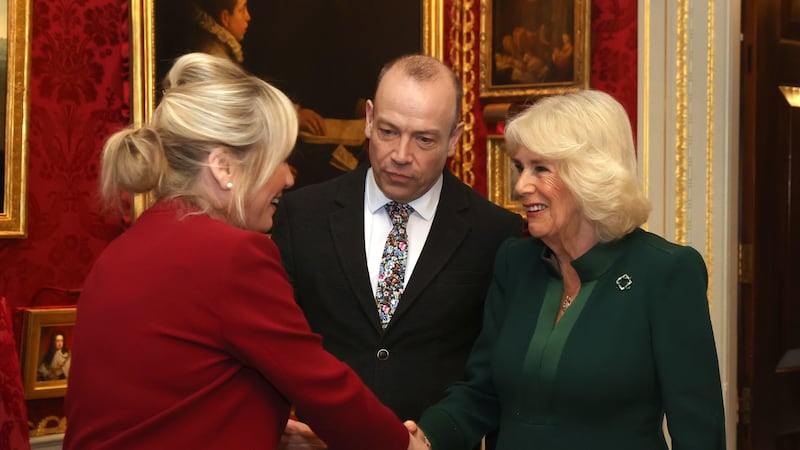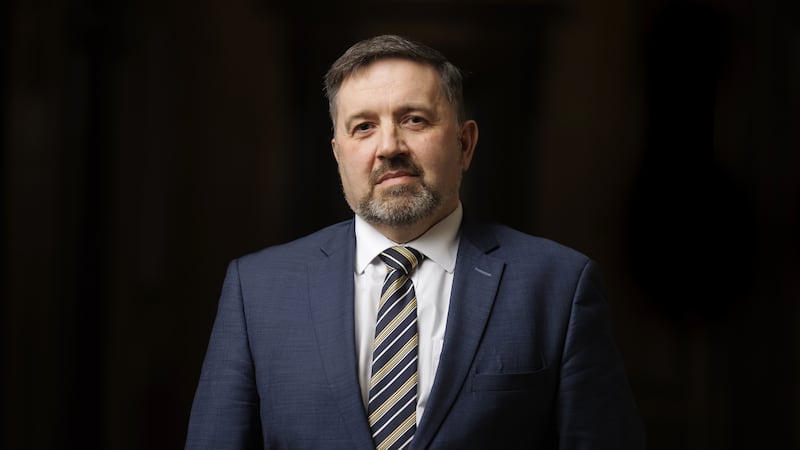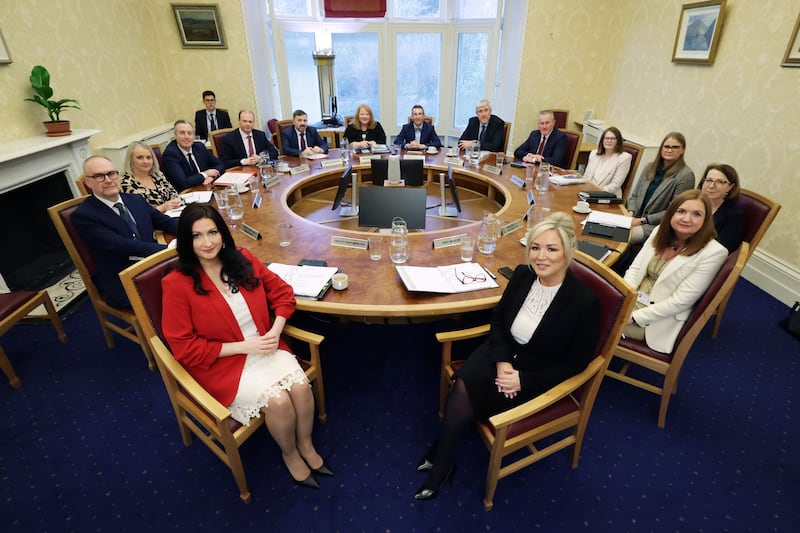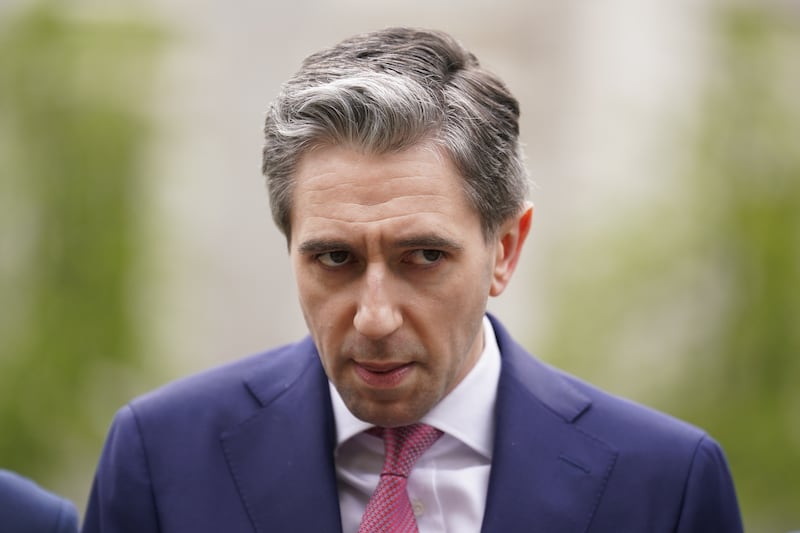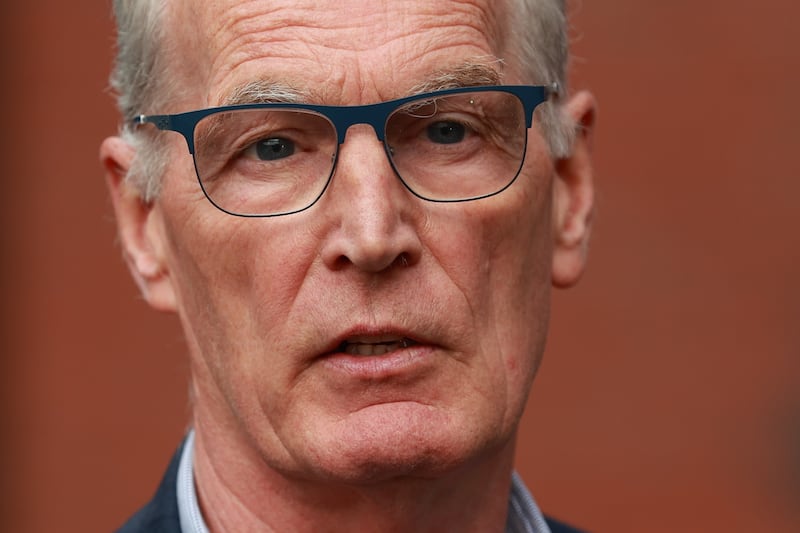“Events, dear boy, events.” That, according to former prime minister Harold Macmillan, was the most likely influence on political careers and ultimately political history.
In the case of Jeffrey Donaldson, Macmillan might have added that completely unexpected events have an even greater influence.
The evidence for this lies in a similar event which rocked nationalism over 130 years ago. It still influences our politics today. Welcome to the world of unpredictable, historical ripples.
Charles Stewart Parnell was the leader of the Irish Parliamentary Party in the 1880s, but he had a good working relationship with the physical force Fenian Brotherhood. His parliamentary Home Rule campaign effectively kept the Fenians from violence through their respect for him.
He said that if constitutional politics did not deliver self-government to Ireland, he would leave parliament. However, his parliamentary career suddenly ended when he was named in a divorce case.
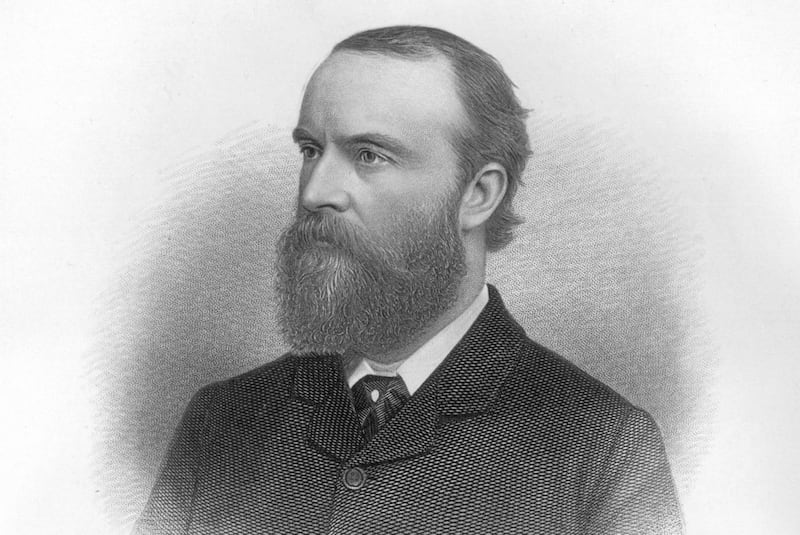
Kitty O’Shea had been separated from her husband for about 15 years, but he refused to divorce her because she was due a large inheritance.
When he finally did so in 1889, he cited Parnell’s relationship with Mrs O’Shea during her separation as the reason for divorce. It was a national scandal. (This was in the days before Boris Johnson.) The leader of Irish nationalism had breached the Victorian facade of placing social respectability above human relationships.
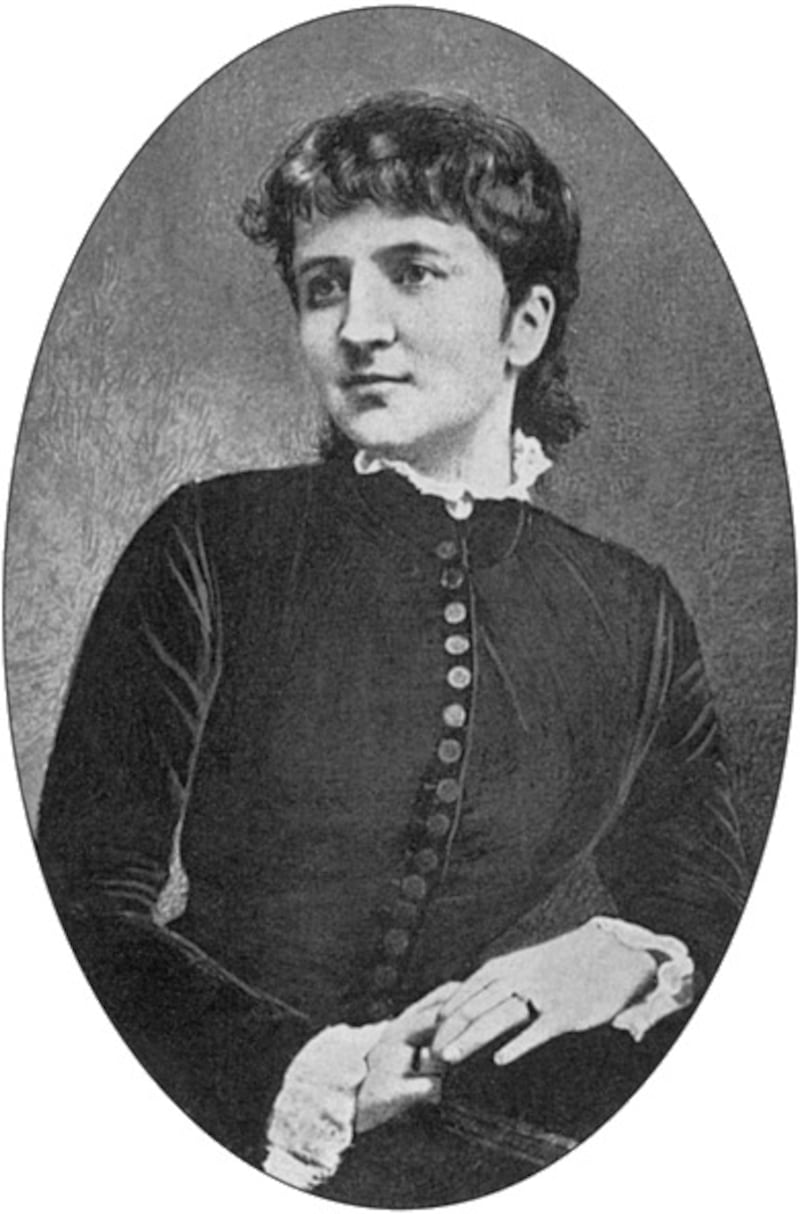
Parnell’s fall from grace split his party and although it later re-united, it was led by John Redmond, who had none of Parnell’s ability. He eventually campaigned for nationalists to fight for Britain in the First World War.
With Parnell disgraced, constitutional nationalism was replaced by physical force republicanism. Had Parnell never met Mrs O’Shea, there might not have been an Easter Rising, nor indeed an IRA as successors to the Irish Volunteers.
So it might be argued that the IRA emerged as the result of a divorce court case in England. (In a similar vein, Brendan Behan said, in more colourful language, that the Church of England was founded on Henry VIII’s liking for having wives.)
It is unlikely that Jeffrey Donaldson’s fall will lead to unionist violence. Through a network of informers, loyalist paramilitaries appear to be effectively controlled by British intelligence, which allows them to meddle in the drugs trade, leaving them little time or energy for anything else.
The outcome is more likely to be political. Jeffrey’s personal identification with the Windsor Framework means that his political demise will raise questions not just about the DUP’s return to Stormont, but about the overall nature and purpose of unionism. The result is likely to be further unionist fragmentation.
However, although Jeffrey’s court case will damage unionism, it will not necessarily damage the union. Nationalist allegiance to the state of Northern Ireland has never been stronger. (Sinn Féin allows us to say “Northern Ireland” now.)

One hundred years ago Northern Ireland’s first prime minister, James Craig, argued for political stability. This week Northern Ireland’s first minister made exactly the same argument – hardly the sentiment of a party hoping to destroy the state. The union is safe in Sinn Féin’s hands.
Yes, Sinn Féin advocates a border poll (which is always going to be within the next decade), along the lines of St Augustine’s prayer, “Lord, make me pure but not yet.” However, the style and content of their governance at Stormont shows they intend to retain power there in the long term.
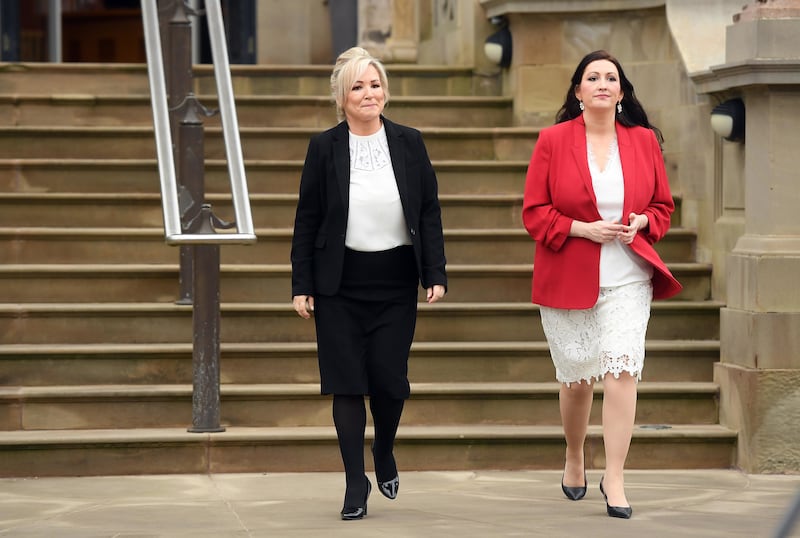
The emergence of leaderless unionism has carved in stone Sinn Féin’s transfer from supporting republican violence into constitutional nationalism. It is the reverse of what happened after Parnell’s downfall. The lesson for unionism is that without discrimination, most nationalists would have settled comfortably into the new northern state.
This is evidenced by massive electoral support for both Sinn Féin’s love affair with British royalty and its right-wing stance in international affairs, which is aligned with British foreign policy.
The emergence of leaderless unionism has carved in stone SF’s transfer from supporting republican violence into constitutional nationalism
In a wonderful display of political ventriloquism, SF claims to stand shoulder to shoulder with Palestine, while rubbing shoulders with Joe Biden. He is the man who sends the arms to Israel, which have killed 33,000 Palestinians, two-thirds of them women and children.
- Reading out the 1916 Proclamation again will change nothing. Understanding it might be a start – Patrick MurphyOpens in new window
- Dear Michelle and Emma. You’ve done the PR. Now when are you going to tackle public services? – Patrick MurphyOpens in new window
- Brian Feeney: Sinn Féin is showing leadership – not that the media would tell youOpens in new window
The poet Austin Clarke wrote that de Valera’s Special Branch “quicklimed the last republicans”. If he were alive today, Clarke might suggest that Jeffrey Donaldson’s political departure is likely to have the same impact.
If the IRA’s origins can be traced to a court case in England, its termination may well be marked by a forthcoming court case in Newry. Events, dear boy, events.

